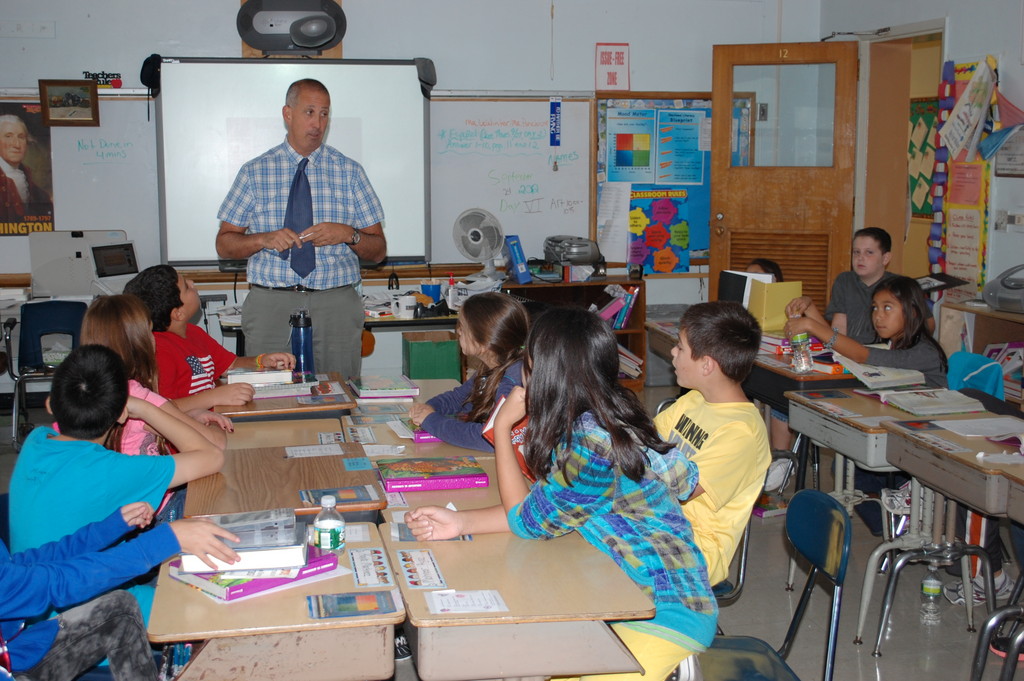State OKs teacher evaluation plans
The state Education Department has approved new teacher evaluation plans in two Valley Stream school districts, which for the first time will tie teacher performance to student success on tests.
Last week, the state gave approval for plans developed in Districts 24 and 30. The new Annual Professional Performance Review plans, commonly known as APPR, are mandated in states which took federal Race to the Top funds.
District 24 Superintendent Dr. Edward Fale said the goal was to develop a plan that was fair to teachers, supports professional growth and provides a meaningful evaluation system. A committee of administrators and teachers, led by Brooklyn Avenue School Principal Dr. Scott Comis, developed the plan.
“Each plan is individualized to the district,” Fale said.
District 30 Superintendent Dr. Nicholas Stirling said the plan there was also developed by a team of teachers and administrators, and is consistent with the educational values of the district.
In both districts, 40 percent of a teacher’s evaluation will be based on student test scores, which will include both state and local assessments. The remaining 60 percent of an evaluation will be determined by classroom observations and other factors.
“We’ve never been scored quantitatively in terms of evaluations,” Stirling said. “That is new for the entire profession.”
Stirling said he does have concerns about linking teacher performance to student test data, but the district will comply with state regulations. He said district leaders will monitor the effectiveness of the new system.
Fale said the teacher evaluation does rely on the state providing strong, fair and consistent tests. “A lot of it really depends on everything the state Education Department did being educationally sound and valid,” he said.
If the tests are goods, he said, then the statistics won’t lie.
Comis said that the new APPR could benefit teachers. It will give them immediate feedback as to their strength and weaknesses. The district can then provide teachers with the appropriate training to make them better.
He explained that the new evaluation plan is not designed as a “gotcha” for bad teachers, but as a way of improving both teacher and student performance. That’s why teachers were part of the committee that developed District 24’s APPR plan.
Because the APPR plans were developed in the middle of a teacher’s contract, some components had to be negotiated with the Valley Stream Teachers Association, including an appeals process. Under the new plan, teachers can receive one of four ratings — highly effective, effective, developing or ineffective. A teachers getting one of the lower two ratings can appeal.
It is language about the appeals process that has held up the Valley Stream Central High School District’s APPR plan from being approved, much to the dismay of district administration. The plan gives teachers five days to appeal a negative evaluation, consistent with other Valley Stream districts. However, the state had reservations about a part of the plan that allows for an extension of the deadline in special circumstances, and called for that part to be removed.
Superintendent Dr. Bill Heidenreich has questioned the state, saying that the same provision is included in plans that have been approved in other districts. “There are other plans that have the exact same words that we’re supposed to change,” he said. “It’s a stumbling block that has nothing to do with education.”
Heidenreich said there is inconsistency among the people analyzing the plans. He said he hopes to have the matter resolved soon and the plan approved within the next few weeks.
Richard Hermann, president of the Valley Stream Teachers Association, said he is satisfied with the plans that were developed in the four local districts. He noted it was a difficult task, as the state regulations are very onerous.
Like others, Hermann is taking a wait-and-see approach to determine if the new teacher evaluation methods will be effective. “It’s an attempt to objectify something that’s really more subjective than anything else,” he said. “Teaching is an art and they’re trying to make it a science.”






